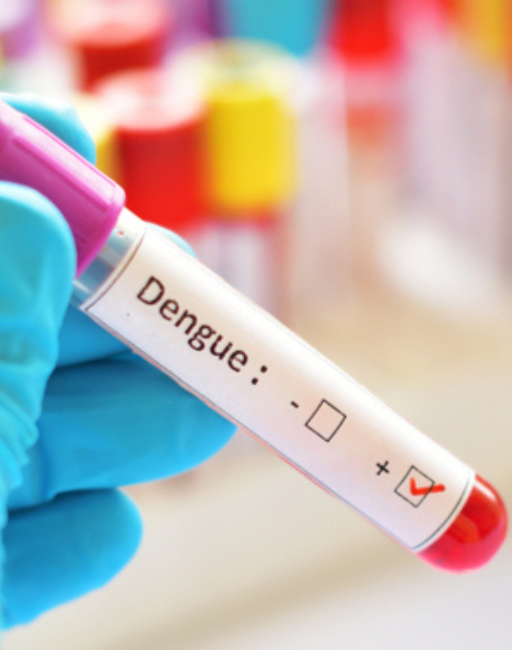How is Dengue Develops and manage ?
Development of Dengue
Transmission
Dengue is caused by the dengue virus, which is transmitted to humans through the bite of an infected Aedes mosquito, primarily Aedes aegypti and Aedes albopictus. These mosquitoes become carriers of the virus after biting an infected person.
Viral Multiplication
Once the virus enters the human body, it multiplies in the cells of the immune system. The incubation period is typically 4 to 10 days after the mosquito bite. After this period, symptoms begin to appear.
Spread within the Body
The virus spreads through the bloodstream, causing symptoms such as high fever, severe headache, pain behind the eyes, joint and muscle pain, rash, and mild bleeding.
Management of Dengue
Diagnosis
- Medical History and Symptoms: Initial diagnosis based on symptoms and patient history.
- Blood Tests: Confirm the presence of the virus or antibodies, and monitor platelet count and hematocrit levels.
Treatment
There is no specific antiviral treatment for dengue. Management focuses on relieving symptoms and preventing complications.
- Hydration: Ensuring adequate fluid intake to prevent dehydration.
- Pain Relief: Acetaminophen (paracetamol) is recommended for fever and pain. Avoid aspirin and nonsteroidal anti-inflammatory drugs (NSAIDs) as they can increase the risk of bleeding.
- Rest: Adequate rest to help the body fight the infection.
Hospitalization
Severe cases may require hospitalization for close monitoring and supportive care, including:
- Intravenous (IV) Fluids: To maintain fluid balance and blood pressure.
- Blood Transfusions: In cases of severe bleeding or very low platelet counts.
- Oxygen Therapy: For patients with difficulty breathing.
Preventive Measures
- Mosquito Control: Eliminate breeding sites, such as standing water in containers.
- Protection: Use insect repellent, wear long-sleeved clothing, and use mosquito nets.
- Vaccination: In some countries, a dengue vaccine is available for individuals living in high-risk areas.



